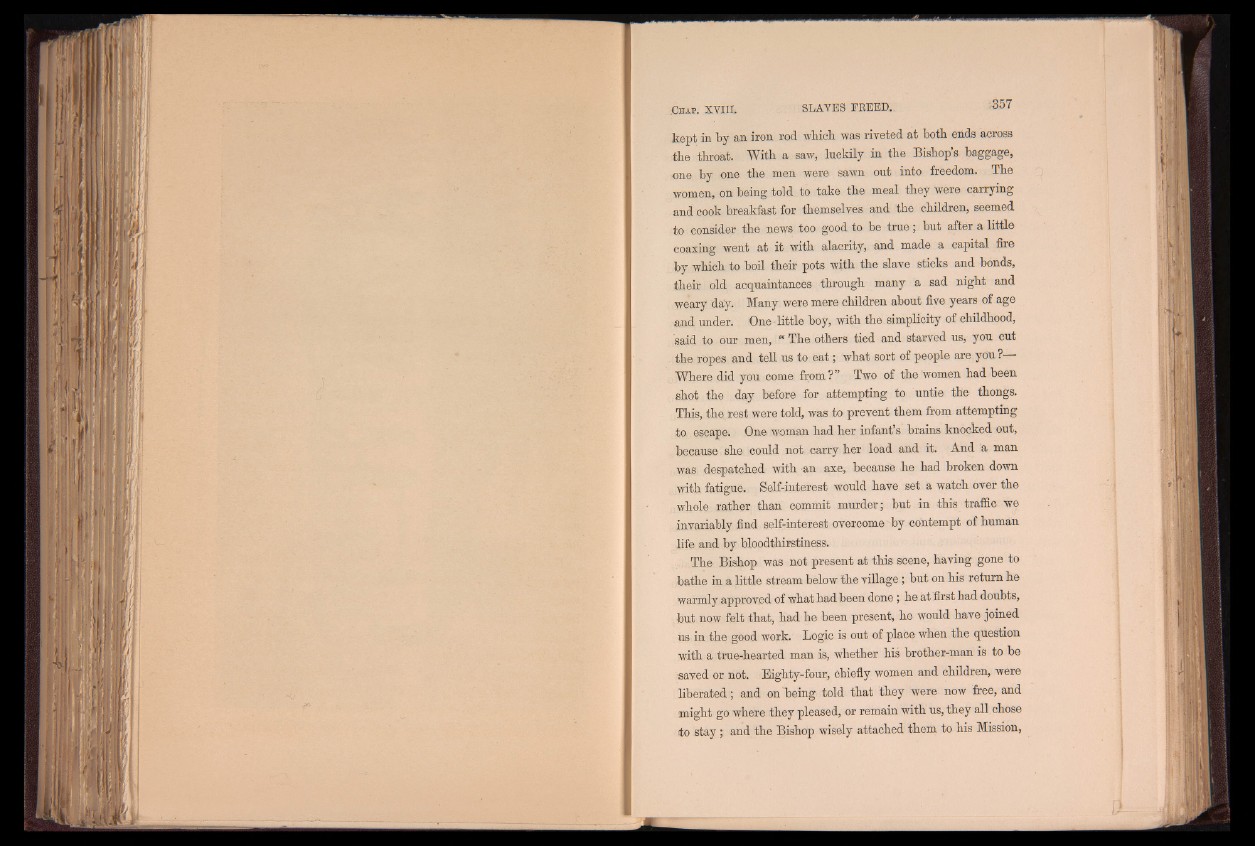
kept in by an iron rod which was riveted at both ends across
the throat. With a saw, luckily in the Bishop’s baggage,
one by one the men were sawn out into freedom. The
women, on being told to take the meal they were carrying
and cook breakfast for themselves and the children, seemed
to consider the news too good to be tru e ; but after a little
coaxing went at it with alacrity,- and made a capital fire
by which to boil their pots with the slave sticks and bonds,
their old acquaintances through many a sad night and
weary day. Many were mere children about five years of age
and under. One little boy, with the simplicity of childhood,
said to our men, “ The others tied and starved us, you cut
the ropes and tell us to e a t; what sort of people are you?—■
Where did you come from?” Two of the women had been
shot the day before for attempting to untie the thongs.
This, the rest were told, was to prevent them from attempting
to escape. One woman had her infant’s brains knocked out,
because she could not carry her load and it. And a man
was despatched with an axe, because he had broken down
with fatigue. Self-interest would have set a watch over the
whole rather than commit murder; but in this traffic we
invariably find self-interest overcome by contempt of human
life and by bloodthirstiness.
The Bishop was not present at this scene, having gone to
bathe in a little stream below the village; but on his return he
warmly approved of what had been done; he at first had doubts,
but now felt that, had he been present, he would have joined
us in the good work. Logic is out of plaCe when the question
with a true-hearted man is, whether his brother-man is to be
saved or not. Eighty-four, chiefly women and children, were
liberated; and on being told that they were now free, and
might go where they pleased, or remain with us, they all chose
ito stay; and the Bishop wisely attached them to his Mission,